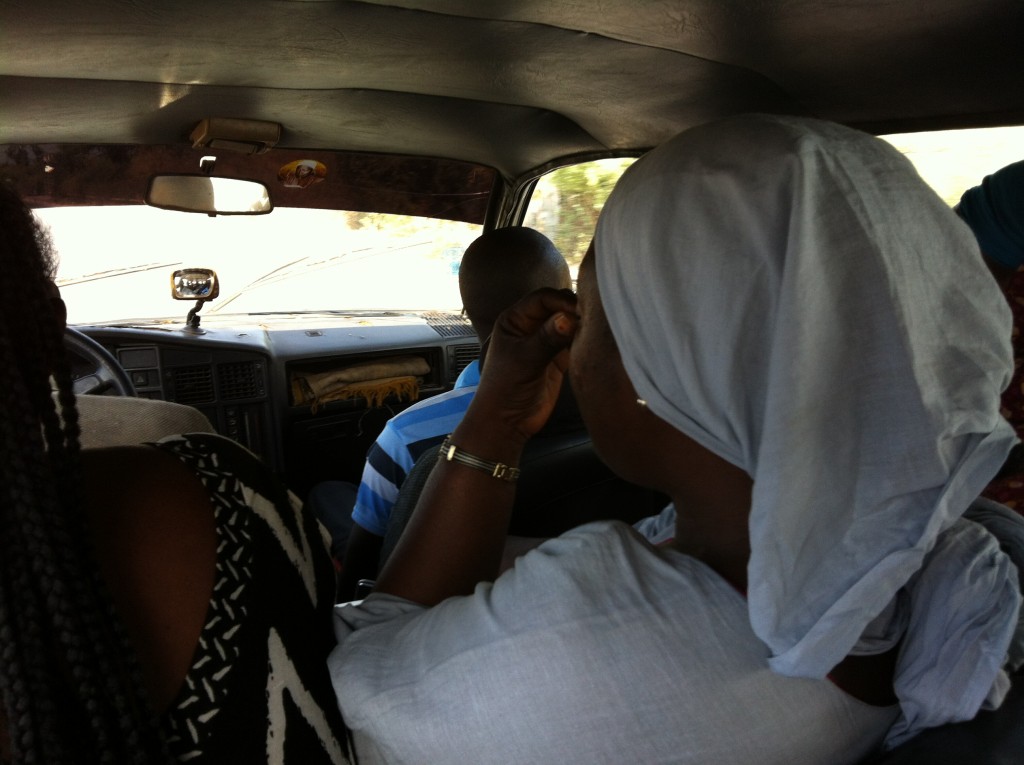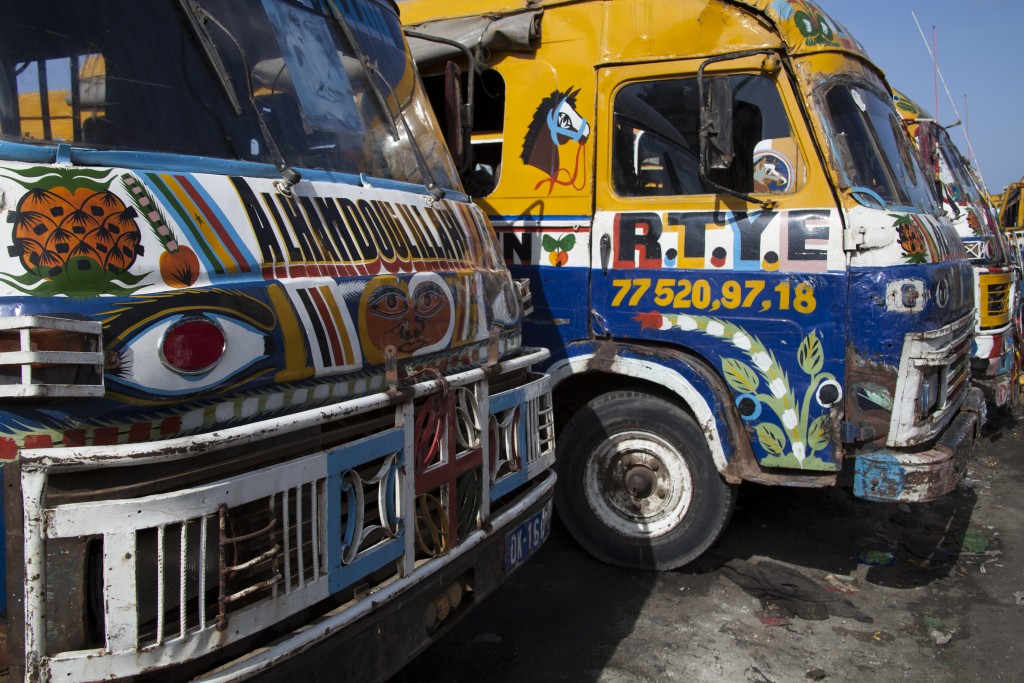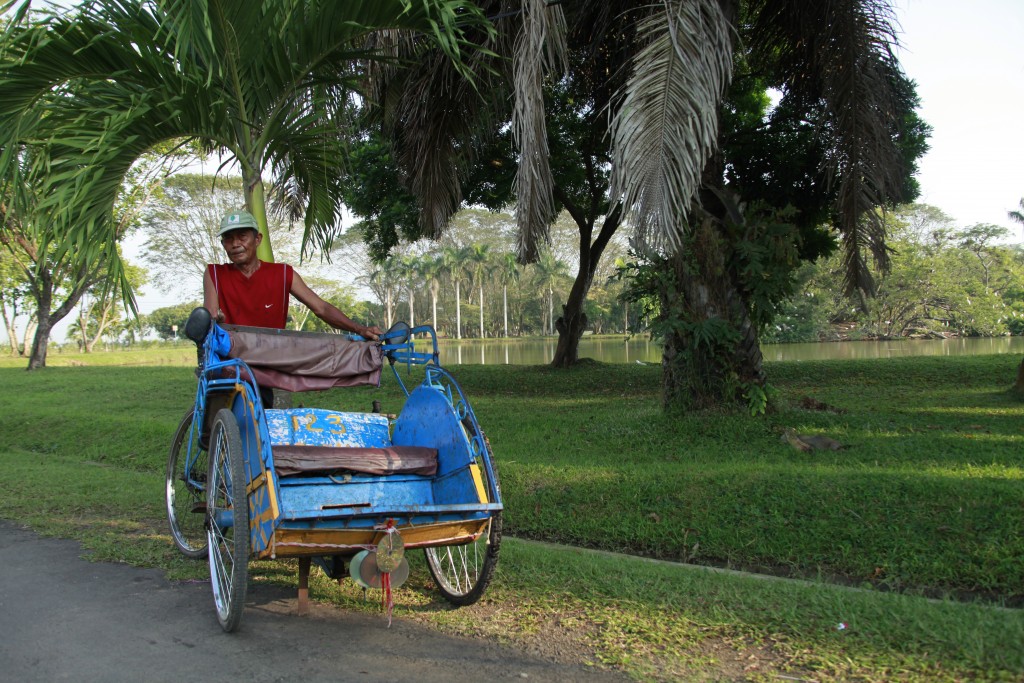The Ultimate Guide to Developing Country Transportation
One of the challenges of backpacking in developing countries is land transportation— knowing what’s safe, what’s reliable, and how it varies from country to country— even city to city. One of these best things about adventure travel is learning how to let go of all assumptions, taking calculated risks, and realizing all the discoveries you’ve make by being open to the experiences and people around you.
Let this guide be your go-to for all land transport in developing countries and rural areas. Adventure on!
1. Taxis

Taxis are typically the most expensive way to get around, but also one of the easiest from main transportation hubs (think airports, bus stations). They can also be unsafe if unprepared— always ask or research beforehand what the reputable taxi companies are. If you’re in a really rural area with limited options, make a calculated guess based on initial conversations, and always sit in the backseat with your luggage.
If you’re at an airport, ask at an information/company desk which taxi service is the best at the airport (preferably ask a woman), or research the area beforehand and ask your hotel/hostel which taxi service they recommend. They might recommend pre-arranged transport if taxis aren’t safe in the area, either way, you’ll know more info about the area when you arrive and can make an informed decision.
Think about whether you want your bags next to you, or in the trunk. I keep all my equipment (camera, laptop, phone, passport, money etc.) in one backpack which is always with me, and my duffel of clothes go in the trunk. If in a metropolitan area with a lot of people/vendors around the taxi, keep the windows rolled up so someone passing by can’t reach in and grab your bags.
Have exact change, and always agree on the price beforehand— your negotiating power is lost once you hand over your bags or get in the car. Know what’s a fair price by researching beforehand. Don’t go with a driver who is obviously trying to rip you off, keep repeating the price until they negotiate with you, or walk away and find another driver. Simultaneously, don’t get in a taxi with a fellow traveler who is trying to rip off driver off— spare yourself some grief and venture on solo.
2. Mini Buses (Inter-city transport)

I’m a huge fan of the mini bus— they’re packed, stuffy, and hot, but you’ll never meet so many locals and hear as many stories in such a short period of time. Some cities are safer to travel in local mini buses than others (you don’t want to be in a traffic accident in one of these), and they’re always called something different depending on the city. In Senegal they’re referred to as ‘rapides’, in The Republic of Georgia they’re called ‘marshrutkas’, in Peru they’re called ‘micros’, and so on.
From your hostel/hotel, have the receptionist write down your destination on a piece of paper in the local language/characters. Ask him/her about the best way to navigate to the minibus station, the phonetic spelling of the station itself (and even the phonetic spelling of the destination). Once you have these written down, you’re golden. (If you like to be even more prepared, ask them to write down the phrase “Where is the bus/marshuka/station?” in the local language/characters. That way, if someone doesn’t understand your accent, you can show them this piece of paper and they can direct you. It’s ridiculously easy, and I’ve navigated many cities this way, picking up conversational phrases by asking locals for directions, and meeting all kinds of people using local transport.
Watch your things. Don’t leave your passport or any valuable items in back pockets of jeans or backpacks where someone might easily grab them in a crowded space. Wear your backpack backwards, and if you have to throw a bigger piece of luggage on the roof or in the back, make sure everything of value will be carried on you in your backpack. Most people won’t try to steal your things, but for the small percentage that might, don’t make yourself an easy target and you won’t have any issues.
Mini Buses are usually very, very cheap, although sometimes as a tourist, you’ll be charged the ‘tourist rate’ instead of the local rate. I’ve been with travelers who take offense at this, but the fare is usually so cheap I’m generally happy to put a little more money into the economy with the small amount I tend to spend in developing areas.
3. Buses (Long Distance Touring Buses)
Buying a bus ticket in a developing country, particularly in Africa, means nothing more than you and your luggage will be traveling on a bus— it does not mean you have a reserved seat. People will crowd around the bus door pushing and shoving to make their way onto a crowded bus to find the last available seats— everyone else will be standing the several hour+ journey. There will be livestock, lots of meals eaten in laps, and it’s going to be hot— but it will be an adventure!
Have your luggage ready to be crammed into one of the luggage spaces below the bus, and jump into the human pile or be left standing in the aisle.
Buses are usually very cheap depending on where you are. If your destination happens to be more touristy (South-East Asia as opposed to rural Africa) there might be nicer options for a higher cost, which might be worth it for a reserved seat on a long journey.
4. Rickshaws

Rickshaws are the most exhilarating form of transport— there’s nothing like speeding through a city on the back of a bicycle, or part motorcycle, the wind streaming through your hair and being completely exposed to the elements. They’re also the trickiest form of transportation in terms of price negotiation and safety. One memorable rickshaw ride in Delhi (called ‘autos’ in the city) the driver stopped the auto and asked if I minded giving an elderly woman a lift home as well, which of course, I didn’t mind at all.
I highly recommend all rickshaw rides, just make sure to negotiate and be aware of your surroundings. At night in many cities traveling solo, I might shell out the extra money for a verified taxi and forgo the rickshaw or minibus— but it really depends on where you are and who you’re with.
Rickshaws are usually very, very cheap, one of the cheapest forms of transportation you’ll find in developing countries, and are great for shorter distances in cities that don’t require a taxi. Make sure the driver is aware of the destination, and you have agreed upon a price before getting into the rickshaw.
Be as prepared as you can, along with being open to new experiences, and you’ll be safe and have some great adventures on the road.
